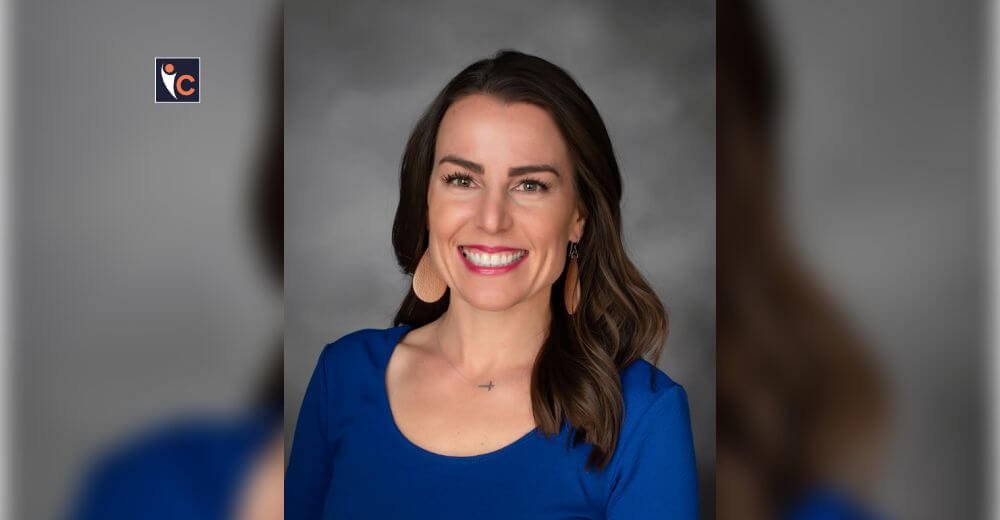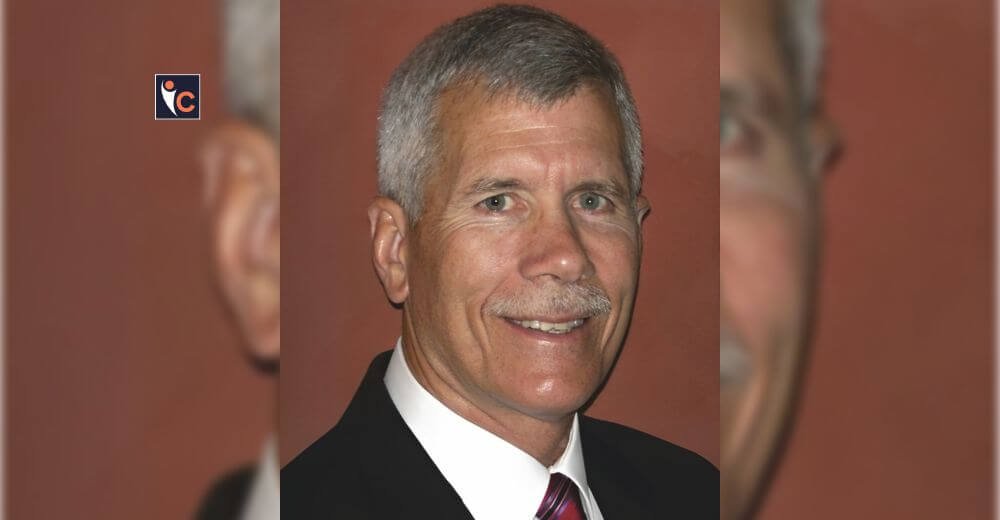Odesa Stapleton is an accomplished leader in the arena of human resources, labor and employment law, and diversity and inclusion. She has been highly recognized for her significant contributions to the organizations she worked for.
Odesa currently serves as the Chief Diversity and Inclusion Officer (CDIO) at Bon Secours Mercy Health (BSMH). In leading the diversity and inclusion strategy, she has the guidance of Joe Gage, Chief Human Resources Officer and John Starcher, Chief Executive Officer. With their support and that of the Board of Directors and Executive Leadership Council (ELC), she develops and guides the diversity and inclusion strategy to ensure it is integrated throughout the organization so leaders and all associates maintain awareness that diversity, equity, and inclusion (DEI) are business imperatives.
BSMH strives to have an inclusive culture where everyone is treated with dignity and respect, extending this practice to patients, associates, clinicians, and the communities they serve. Odesa tries to exemplify this practice while empowering others to do the same.
Our team at Insights Care is always on the lookout for such inspirational leaders. We interacted with Odesa to gain insight into her journey and work in the field that led to her becoming a prominent leader in Diversity & Inclusion.
Let’s dive into significant highlights from her journey:
Odesa’s Role in Promoting Diversity and Inclusion at BSMH
BSMH is a non-profit organization that provides healthcare services with a commitment to serve all of God’s people. The mission, vision and values at the organization continue to promote an underlying expectation of inclusion which directly correlates with Odesa’s compassionate leadership style.
It is widely recognized for its positive work culture and opportunities for personal and professional development. Reflecting back on her initial days at the organization, Odesa shares, “I accepted the offer and started working here in 2019. I knew from the start that BSMH valued the importance of diversity, equity, and inclusion.”
Her role has facilitated the organization to expand upon this work by equipping and inspiring all leaders and associates to create a workplace that values all people and treats everyone with dignity and respect. Odesa further highlights, “It continues to be my responsibility to set the strategy, identify board-approved metrics, develop training, and take on more accountability to ensure many areas of inclusion are under the same umbrella for cohesive alignment to achieve the organization’s goals.”
To that end, she is now responsible for the following areas that encompass diversity and inclusion at BSMH:
- DEI education and training;
- System-wide/market-based Leadership Councils for Diversity and Inclusion (LCDIs); Ministry/Employee Resource Groups (MRGs/ERGs);
- Language services, Healthcare Anchor Network (HAN) commitments – local inclusive hiring, sourcing and investments; associate relations, including risk mitigation;
- Affirmative action/equal employment opportunity; human resources policy and compliance; and immigration compliance.
“It is my responsibility as a DEI professional to do my part in hiring, developing, and retaining talent that values human dignity, reflects the communities we serve, and embraces diversity, equity, and inclusion as foundational to our health system and to the healthcare industry,” emphasizes Odesa. She also considers it her responsibility to support the associates and communities they serve to ensure better health outcomes for every person.
“I do my best to connect the dots when it comes to addressing issues of diversity, equity, and inclusion,” she further highlights.
Championing Compassion
Odesa feels that it is imperative for all associates to have the desire to serve others. She encourages others to join them as ambassadors of BSMH and live by its values in performing their duties each day. “Our values of human dignity, integrity, compassion, stewardship and service allow us to adapt to the ever-changing needs of patients, our workforce, and the communities we serve,” she quotes proudly.
Odesa emphasizes that in these critical times, patient-facing talents like nurses, physicians, nurse practitioners and others are hard to find. Hence, it is important to source, develop and retain the best and brightest who are committed to the organization and its values.
She further states, “I also believe it is essential for BSMH to continue showcasing what it does best and augmenting its resources by marketing these practices, products, and skills to others inside and outside of healthcare.” She believes it is vital to continue to keep up with what patients need and want from their providers and others across the healthcare platform to meet them where they are through technology (including artificial intelligence) and other means. This will ensure that patients view them as a trailblazer for putting them first in the healthcare decision-making process.
BSMH’s Strategic Approach
Odesa considers staffing one of the biggest challenges in healthcare. At BSMH, they are continuously looking for recruiting strategies that bring in more talent, specifically technologically savvy, solutions-oriented, business-focused, diverse talent that reflects the communities they serve and the practice areas, as well as functional needs across the health system. It also means establishing partnerships with diverse organizations, including potential investors as they work to scale BSMH’s services.
For example, in 2022, BSMH did business with 662 diverse products and service suppliers and spent $152 million. And, as of September 2023, BSMH spent an additional $107 million with diverse suppliers which impacts the socio-economic status of diverse communities.
In addition, BSMH offers programs to help reduce the cost of education, and the expenses of continuing education for priority healthcare roles. This makes it more cost-efficient for current associates to pursue healthcare careers and assists with attracting talent. BSMH also has a team dedicated to internal mobility which supports associates in their personal and professional development goals, to help retain and grow top talent.
Empowering Insights
Odesa starts with the wise words, “Read, listen, and learn as much as possible about many areas of business. There is no clear path to a career in diversity and inclusion, as different experiences and educational backgrounds help shape a well-rounded person.”
She further underscores that professionals must be inquisitive and explore innovative ideas. This allows for the creation of successful DEI strategies. Adding to it, she states, “Gain a healthy understanding of businesses and human resources, even if specializing and focusing on one type of work or one industry. Find and keep jobs where your personal values best align with the organization’s values. Do not buy into the hype and politics surrounding us each day.”
Odesa advocates the philosophy ‘Enjoy the work you do because you will do lots of it.’ She also believes it is important to find and keep great mentors and great friends. People will not become obsolete. They will be required to learn, grow, and do things differently, especially as technology solutions continue to rise. Continuing on that she shares a beautiful message, “So, be kind and give grace to all humankind; it helps you to exemplify what diversity and inclusion really means. Be a change agent for what is good and right in the world. Do not be afraid to step outside your comfort zone. Be not dismayed.”
Embracing Diversity and Inclusion
Odesa strongly believes that diversity and inclusion are foundational for any business including the healthcare sector. Regardless of the type of diversity, businesses thrive because of the gifts and talents that every person brings to carry out the required processes necessary to sustain the business. “We define diversity as the existence of the gifts, talents and attributes of people, processes, and functions, characterized by BOTH differences and similarities. It includes race and gender,” defines Odesa.
She further adds, “However, it is not limited to only those characteristics. Inclusion is what we do as described previously. Equity is how we do it, treating people in a fair and just way when making decisions.”
Success in healthcare requires all three, internal to the business and throughout the populations served. Together, these principles support BSMH’s practice of upholding, respecting, and defending the dignity of every human being. Talking about diversity and inclusion at BSMH, Odesa highlights, “Our Vision is that, inspired by God’s hope for the world, we will be a ministry where associates want to work, clinicians want to practice, people seek wellness and communities thrive.”
Diversity and inclusion will continue to support the healthcare system’s current and future patient care and financial needs. It can help clinicians grow as people, and help all associates/employees with acceptance, respect and non-judgemental attitudes towards others who may think or look differently. Without the right mix of people, functions, technology, processes and plans to perform current needs and those yet to come, healthcare systems will not thrive. Investors are attracted to health systems with a focused DEI strategy. This ensures that all leadership and others across the system are equipped with the right tools to bring their best ideas to prepare for the future so patients will receive the best care. From a patient perspective, diversity and inclusion should continue to focus on ways to enhance the patient experience such as language services, access to care, in-home care, virtual options and more, while focusing on addressing social determinants of health to make a broader impact as we better understand the reasons and best ways to provide care for all.
Odesa’s Vision for the Future of Healthcare Organizations
Odesa predicts that healthcare organizations will need to focus on expanding their reach and services for patients/customers, employees, and the communities they serve, including, making care more accessible in real-time (examining and using, 24/7 service options when possible), as not all have the flexibility to take off work to see a healthcare provider or take a family member to seek care. Equally as important is how practitioners and clinicians provide patient care. It must always be technologically sound and globally deliverable to ensure the integration of diversity and inclusion in healthcare.
“In an ideal state, healthcare organizations that are diverse and inclusive will accelerate current efforts to provide their communities with medical professionals who understand the patients they serve; a voice that continuously improves high-quality care for everyone, and the right tools for employees to effectively provide care to all patients,” concludes Odesa on an optimistic note.
BSMH’s Commitment to Inclusivity
Sound diversity and inclusion initiatives have the power to positively impact any healthcare organization’s strategy and culture. BSMH is committed to and willing to do what it takes to examine all areas of the healthcare arena in terms of diversity, equity and inclusion. By deliberately making it possible for talent and voices to contribute, we can work together to reach our full potential as an agent for change. This includes utilizing technology, purchasing/supply chain, investment, and workforce, to best leverage our presence in communities. Through these initiatives, BSMH empowers those in communities we serve to have better health outcomes and truly thrive. This is why there is a diversity and inclusion overlay to all we do at Bon Secours Mercy Health.










